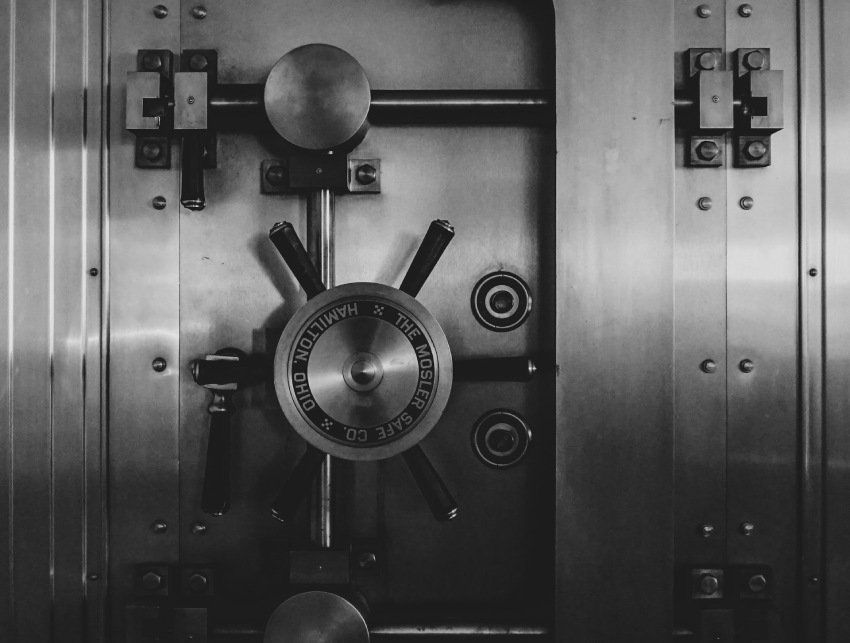Last Updated: March 14, 2024
Things That Has A Huge Impact on Your Financial Future

In today's financial landscape, choosing the right bank is more crucial than ever. With a myriad of factors to consider, from security measures and fee structures to interest rates and digital banking capabilities, the decision can seem daunting.
In this guide, we'll explore the essential considerations to help you navigate your options and find a banking partner that aligns with your financial goals and lifestyle.
Want to skip the article and speak directly to a debt specialist? Click here for a free consultation.
Financial Services
Before you choose a bank, consider what services they offer. At the very least, your bank should be able to provide basic banking needs like checking and savings accounts.
But if there are any other services that align with your goals - such as investing or retirement planning - then it might be worth exploring those options too!
One thing to consider is the difference between using cash and a credit card when you're shopping! While there are many upsides to using a credit card, you should be aware of the interest rates and fees before you sign up.
If your goal is to save money, you may want to consider a cash-back credit card.
If your goal is simply to manage some of the day-to-day needs, then it can be easier just to use cash!
The bank that suits your current financial goals and future aspirations will make all the difference in how smoothly your money management goes.
Bank Customer Service
Your relationship with your bank will depend largely on how satisfied you are with their customer service support.
Make sure the company has responsive representatives available at all hours of the day (and night!) for emergencies or when simple questions arise about transferring money between accounts.
You'll also want to check in regularly with the quality of customer service offered by phone and online chat before committing to one over another.
Finally, don't forget it’s about more than just being responsive and helpful - it's also about feeling valued.
Banking Fees
One factor you will want to pay attention to is the cost of being a customer.
Some banks will charge you fees if your balance falls below a certain amount, or for inactivity on an account - both are things you'll want to watch out for when comparing rates and reviews.
Furthermore, some companies offer more than one type of checking account, which could be ideal depending on what kind of service you're looking for.
One example: Some accounts come with rewards programs that can help offset monthly costs while others may have lower overhead costs but lack features like free checks or unlimited ATM access.
Convenience & Location
For obvious reasons, you'll want to make sure your bank is convenient to where you live or work so you can access it easily.
Some banks are more readily available than others, so you'll want to compare the location of branches and ATMs.
While convenience should be a consideration when choosing your bank, it's not necessarily the most important thing on this list.
This section is about how convenient a company is in terms of being close by as well as having numerous locations all over town or city.
It also matters whether they're open during later hours because some people work late shifts that would make an inconvenient site even worse.
Types of Bank Accounts
There are many different types of accounts out there each with its own varying features for banking needs - personal or business accounts offer checking options while savings can help grow money over time.
- Personal: this type of account is ideal for someone with their own paychecks. It can give them the freedom to spend money without it being a hassle to wait until payday or make transfers, and they may have access to more services like overdraft protection. But there are drawbacks as well such that if your finances are out of control then you might want something else since these accounts don't monitor how much spending has taken place over time.
- Business: this type of account is great because it keeps track of everything including daily transactions so all business owners need to do is keep an eye on things from afar rather than having to watch every penny spent in order not to get into trouble with cash flow management (or bankruptcy). The downside of bank accounts that are focused on business owners is the cost.
Reputation
One last factor to keep in mind is the reputation your bank holds. Do you bank with a large national institution or a regional one?
The larger the bank is geographical, the more likely it will be that they are going to have better customer service. The name recognition of well-known banks can also help if there's ever an issue in which customers need speedy refunds for fraudulent purchases (and this happens a lot).
Large companies often offer perks like checks and cards from other institutions as part of their banking experience too.
As always, make sure to do all due diligence before committing to any major financial change.
Key Factors
When comparing banks, be sure to evaluate:
- Accessibility - branch and ATM locations, mobile app, website
- Account options - checking, savings, CDs, IRAs, investment accounts
- Fees and minimum balances
- Interest rates paid on accounts
- Customer service responsiveness
- Security protections
Thinking through these elements will help you find the best fit.
Accessing and Managing Your Accounts
Consider how you plan to access and manage your finances when choosing a bank.
Important questions to ask:
- How convenient are the bank's branches and ATMs? Can you easily visit a location in-person?
- Does the bank offer a full-featured mobile banking app? Can you deposit checks, pay bills, transfer money, etc. from your phone?
- How user-friendly is the bank’s website? Can you easily view balances, statements, pay bills online?
- Does the bank offer accessibility features for those with disabilities?
Choosing a bank with convenient physical and digital access will make your life easier.
Range of Account Options
Think about what types of accounts you need now and may want in the future.
Many banks offer:
- Checking
- Savings
- Money Market
- Certificates of Deposit
- Individual Retirement Accounts
- Investment Accounts
The best banks have robust offerings to suit both personal and business banking needs. Think long-term when evaluating product options.
Bank Fees
Bank fees should be an important consideration when comparing options.
Common fees include:
- Minimum balance fees - if account balance drops below required minimum
- ATM fees - for using an “out-of-network” ATM
- Overdraft fees - for overdrawing your account
- Wire transfer fees
- Account maintenance fees
- Returned deposit item fees
Ideally choose a bank that offers low-fee or no-fee accounts. Having an account with unnecessary fees can really add up over time.
Interest Rates
While savings account interest rates are generally low compared to investing, they can still vary notably between banks. The highest yield savings accounts pay over 3% APY, while the average rate is just 0.06%.
When choosing a savings account, be sure to consider:
- The base interest rate
- Any requirements to earn bonus interest rates
- How the rate compares to inflation
- Whether the rate is competitive with other banks
Earning a higher interest rate on deposits can help your money grow faster.
FAQs
Conclusion
What we've covered in this article should be a good start if you're not sure where to begin. When it comes to choosing a bank, you need to consider more than just the interest rate.
Is there something specific you'd like more information about? Contact our team today!
✔ Accredited by Better Business Bureau with BBB A+ rating (4.92 rating and 1,700+ reviews)
✔ 7.5 star rating by BestCompany.com (over 2300+ client reviews)
✔ 4.8 star rating by TrustPilot (over 2200+ verified consumer reviews)
✔ ConsumerAffairs.com Accredited (over 500+ verified reviews with an average rating of 5 stars)
✔ A Top 10 Rated Compan by TopTenReviews.com , ConsumersAdvocate.com and Top10debtconsolidation.com
✔ 4.6 star rating by Google (400+ client reviews)
✔ 100% rating by SuperMoney (8 client reviews)
Reduce Your Credit Card Debt By Up to Half

BBB Reviews | 4.9/5.0 Rating









 Do Not Sell My Personal Information
Do Not Sell My Personal Information